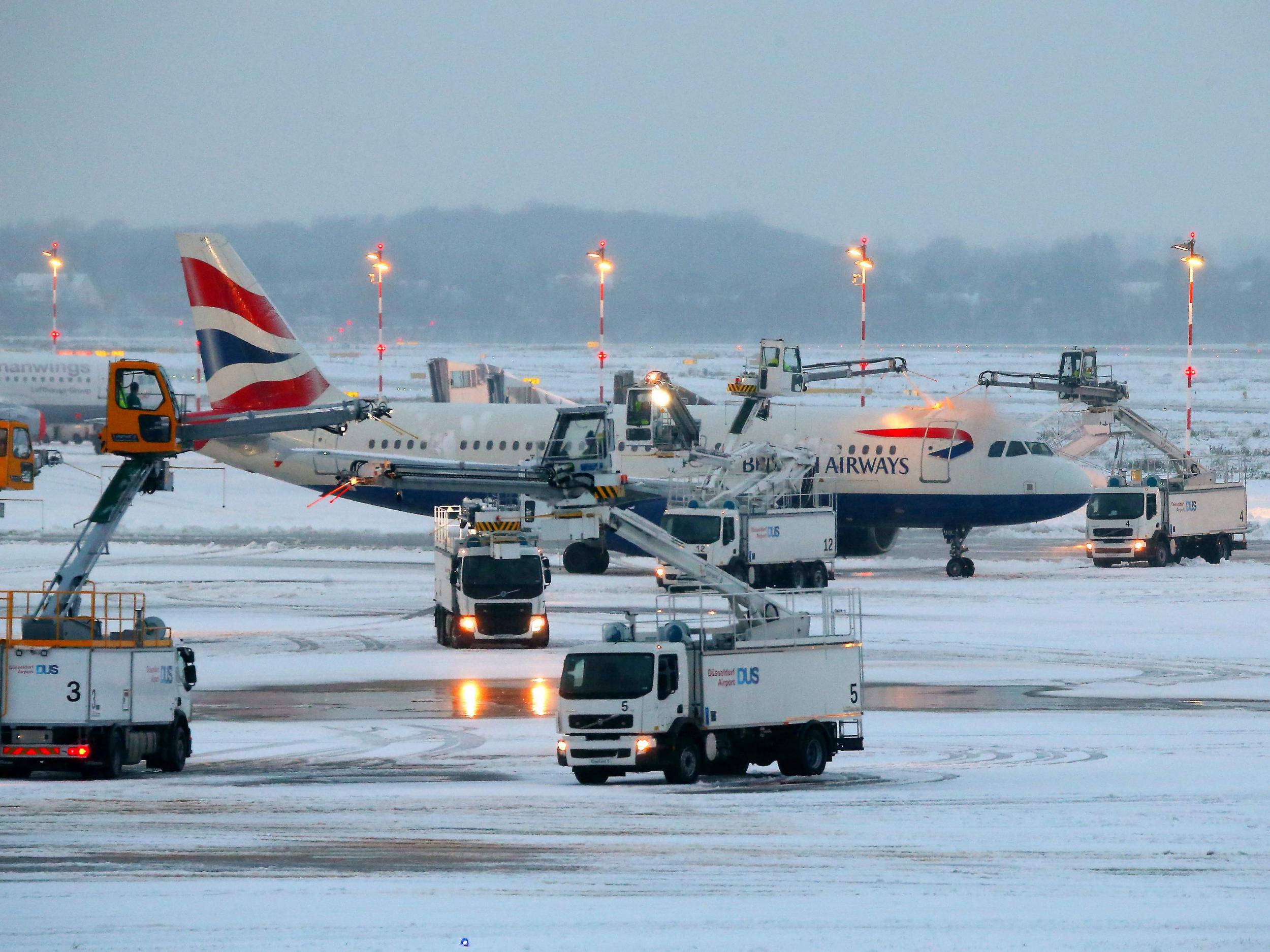Mea Culpa: A meltdown in the snow and ice at Heathrow
A superheated metaphor and other (alleged) glitches in this week’s Independent


Your support helps us to tell the story
From reproductive rights to climate change to Big Tech, The Independent is on the ground when the story is developing. Whether it's investigating the financials of Elon Musk's pro-Trump PAC or producing our latest documentary, 'The A Word', which shines a light on the American women fighting for reproductive rights, we know how important it is to parse out the facts from the messaging.
At such a critical moment in US history, we need reporters on the ground. Your donation allows us to keep sending journalists to speak to both sides of the story.
The Independent is trusted by Americans across the entire political spectrum. And unlike many other quality news outlets, we choose not to lock Americans out of our reporting and analysis with paywalls. We believe quality journalism should be available to everyone, paid for by those who can afford it.
Your support makes all the difference.This week’s cold snap caught out some of our soft southern airports. On Monday, according to one of our headlines, 50,000 passengers were “stranded after de-icing meltdown at Heathrow”. Heavy rain overnight had frozen on plane wings. As John Harrison pointed out, this was a case of a metaphor that has become such a familiar figure of speech that its original meaning had been forgotten.
The word “meltdown” became a popular way of describing a state of total collapse by analogy with an accident in a nuclear reactor in which the fuel overheats and melts the reactor core. It rather clashes when applied to the organisational challenges of an airport that couldn’t melt the snow and ice quickly enough.
Hard to estimate: Almost every time we use the “hard to overestimate” device, we get it wrong, and the opening sentence in Monday’s article about Max Clifford was no exception. “Max Clifford’s death at the age of 74 brings to an end the life of a man whose impact on the British media is hard to underestimate,” we wrote. Thanks to Paul Edwards pointing it out – it has been changed.
My advice is that if a writer is ever tempted to write that it is difficult to overstate something or hard to exaggerate something else, instead of checking whether they have it right, just say it another way.
Word blind: Another reader wrote to take issue with a report of a study that “suggested the key to winning people over to your side of the argument may be verbal rather than written”. This “confuses verbal with oral”, our correspondent complained.
I must come to the defence of our reporter. “Verbal” can mean to do with words, as in verbal abuse rather than physical, but it is also widely used to refer to the spoken word. Indeed, the second meaning listed by the Oxford Dictionary is: “Spoken rather than written; oral.”
What is more, there was no room for confusion here, as it was explicitly contrasted with “written”.
Eye-dropping: We invented a delightful new adjective this week, reporting on “the latest example of eye-dropping price-gouging in the US’s lightly regulated pharmaceutical industry”. As Gavin Turner pointed out, we meant either eye-watering or jaw-dropping.
There were other problems with this article. “Price-gouging” may be common in American news reporting, but it is unfamiliar in British English, where we tend to go for the more demotic “rip-offs” to describe unjustified price rises.
The article also broke the rule against using percentages greater than 100 per cent. It said that one US drug maker had increased the price of a bottle of vitamins “by more than 800 per cent”. That is a nine-fold increase or a price multiplied by nine. Which is a dramatic enough increase not to need extra digits.
Worse, we wrote that the company had increased the price of another drug “by 2,469 per cent”, which adds the crime of unnecessary precision to that of too many digits. Given that we gave the actual prices, a 30ml bottle going up from $11.48 to $295, we didn’t really need any more, as a numerate reader can work out for themselves that is a 25-fold increase.
Join our commenting forum
Join thought-provoking conversations, follow other Independent readers and see their replies
Comments